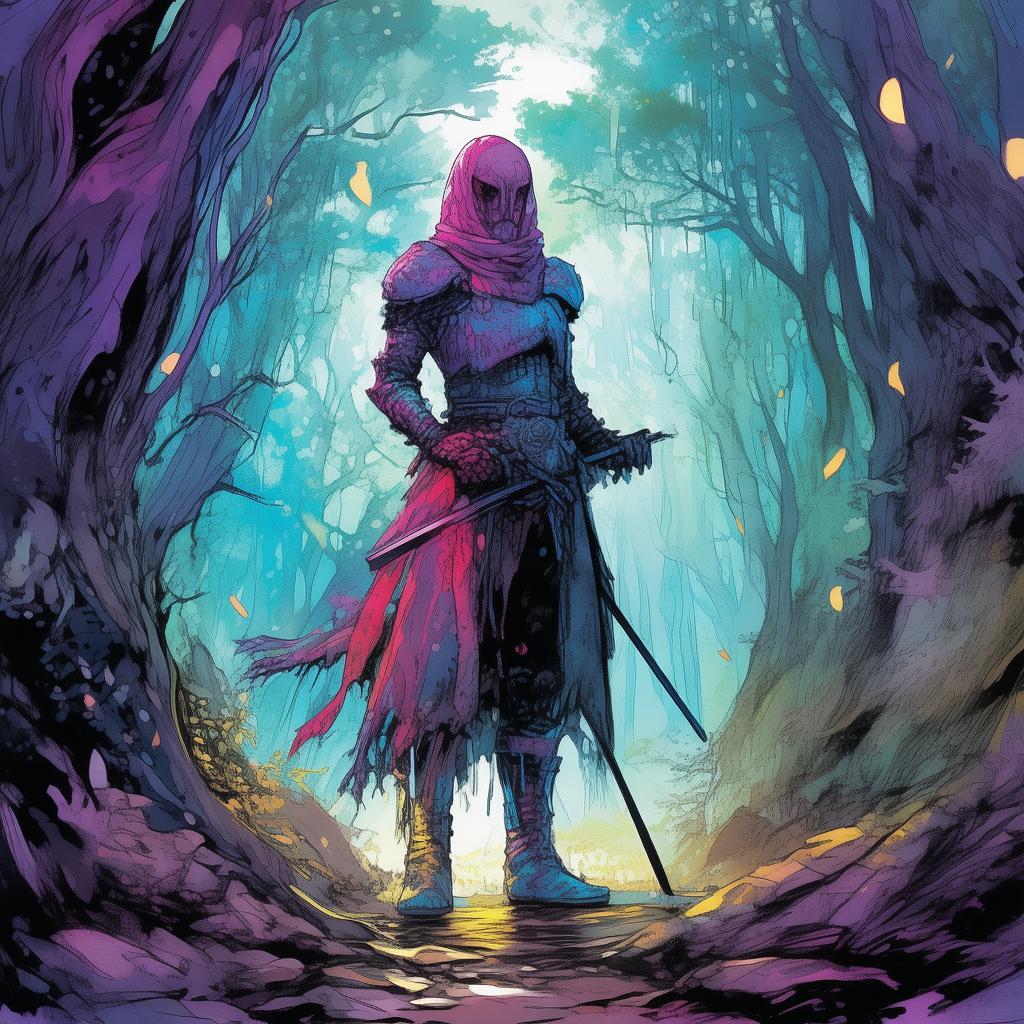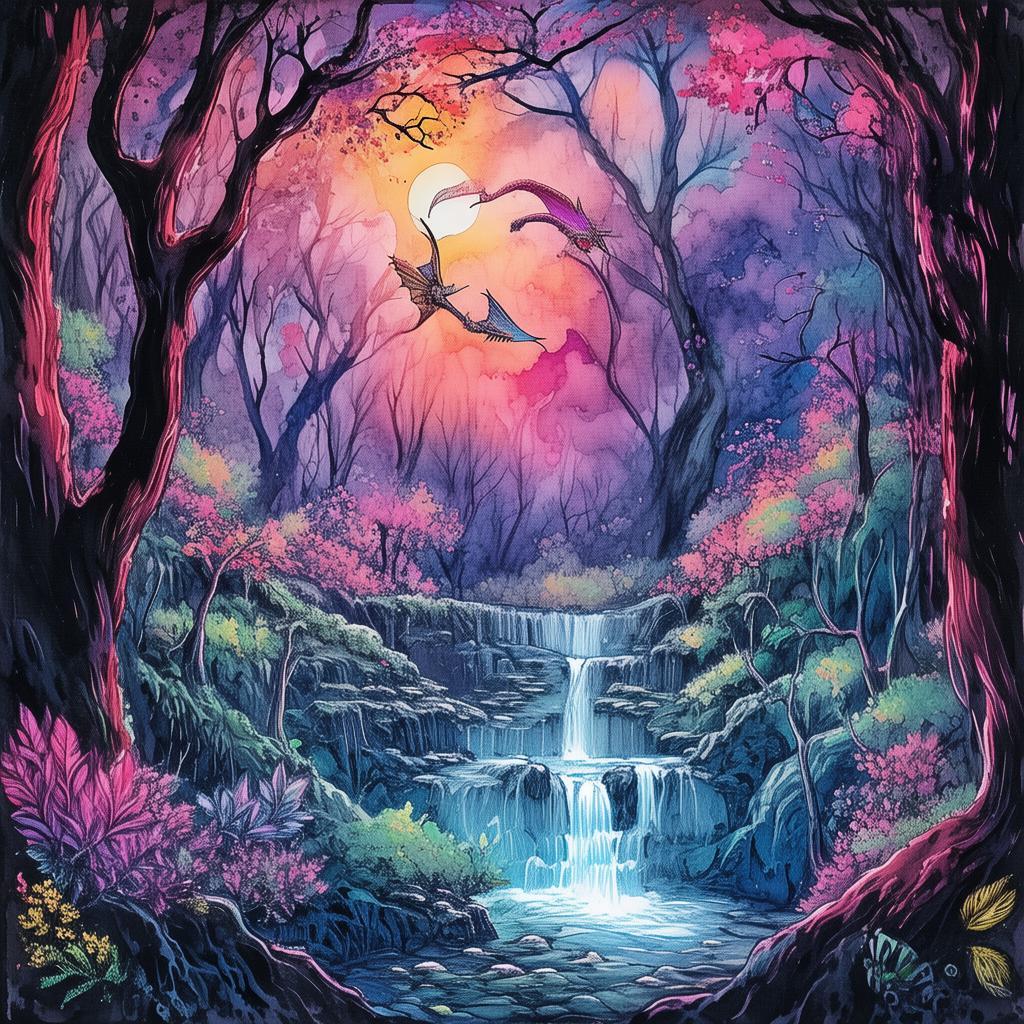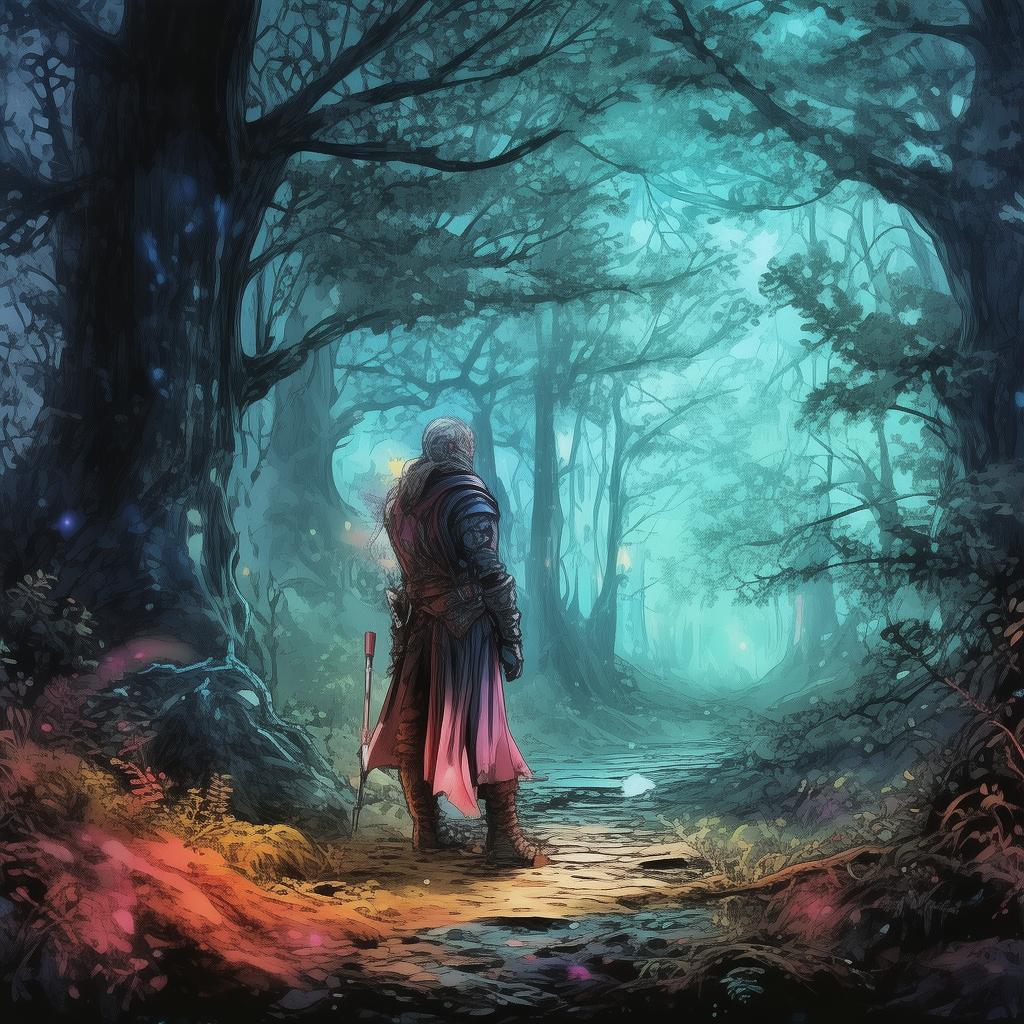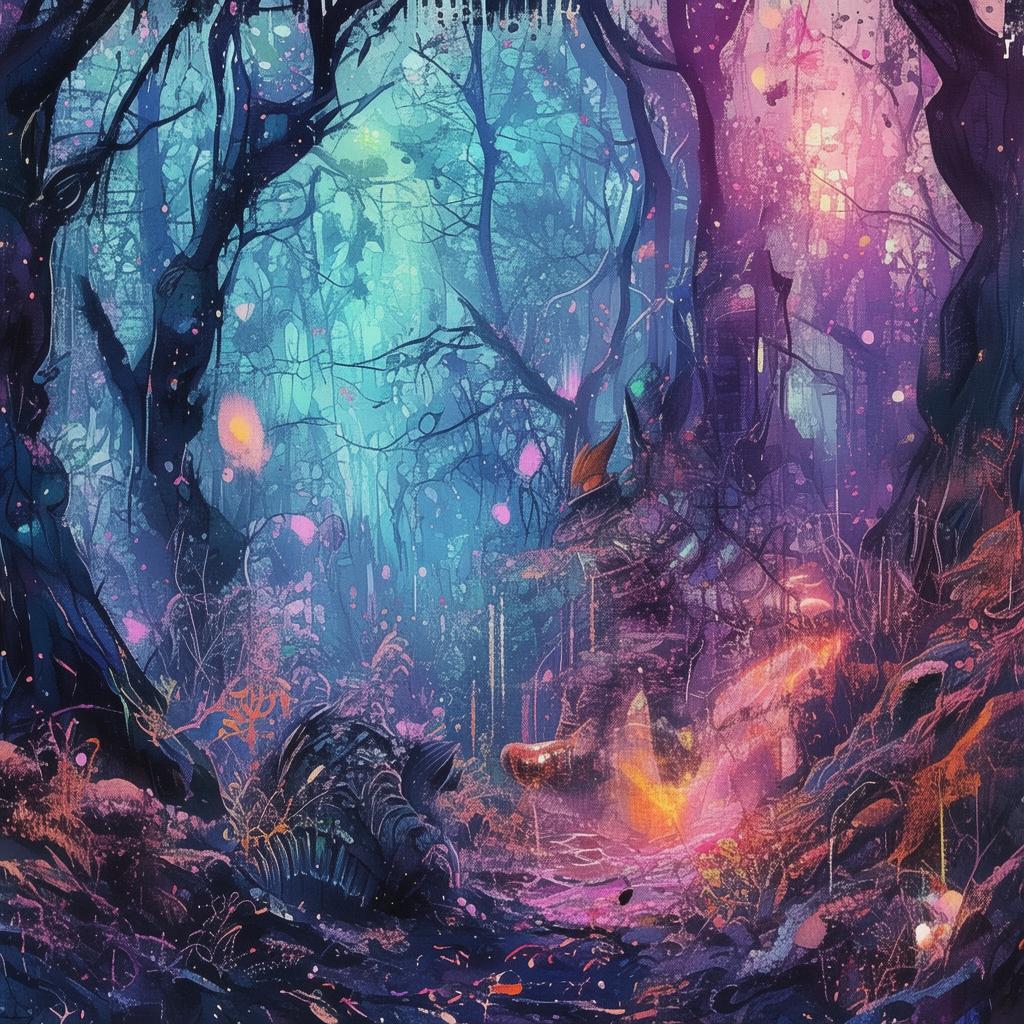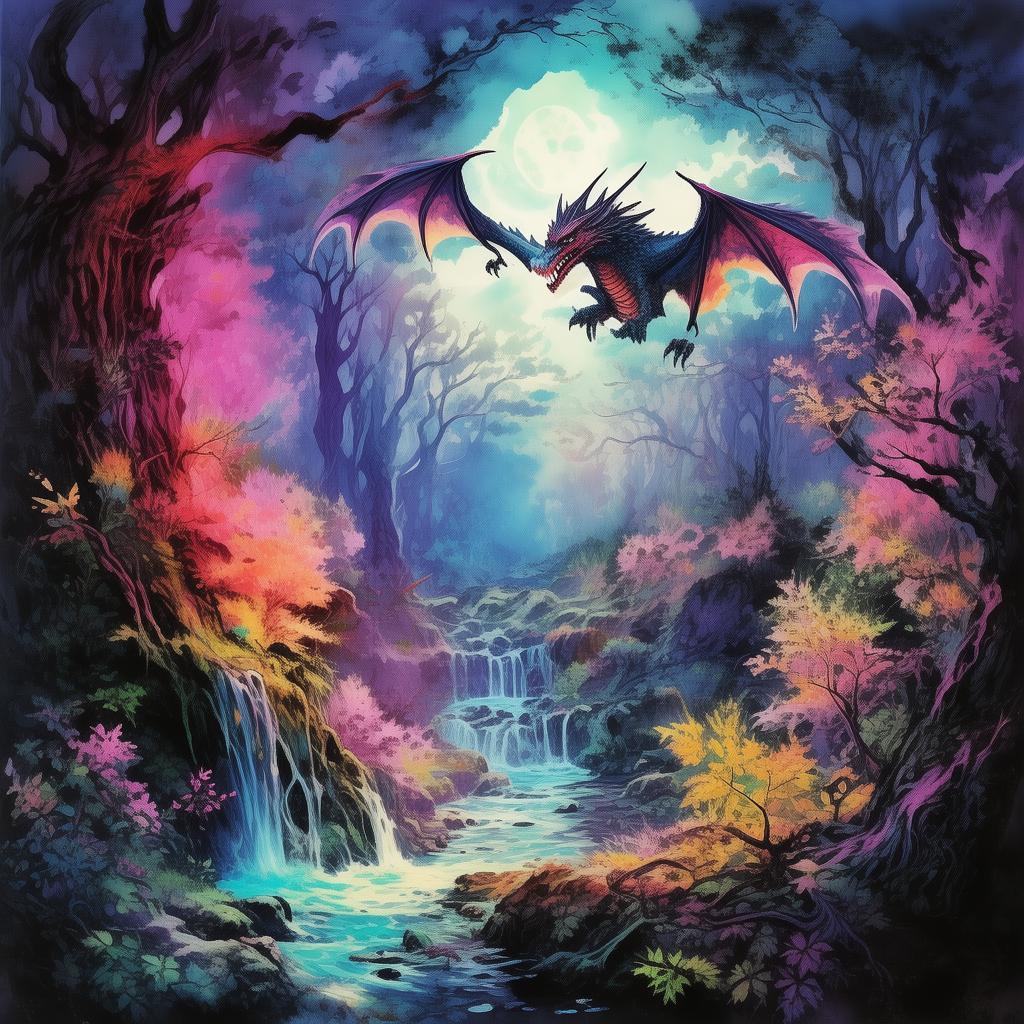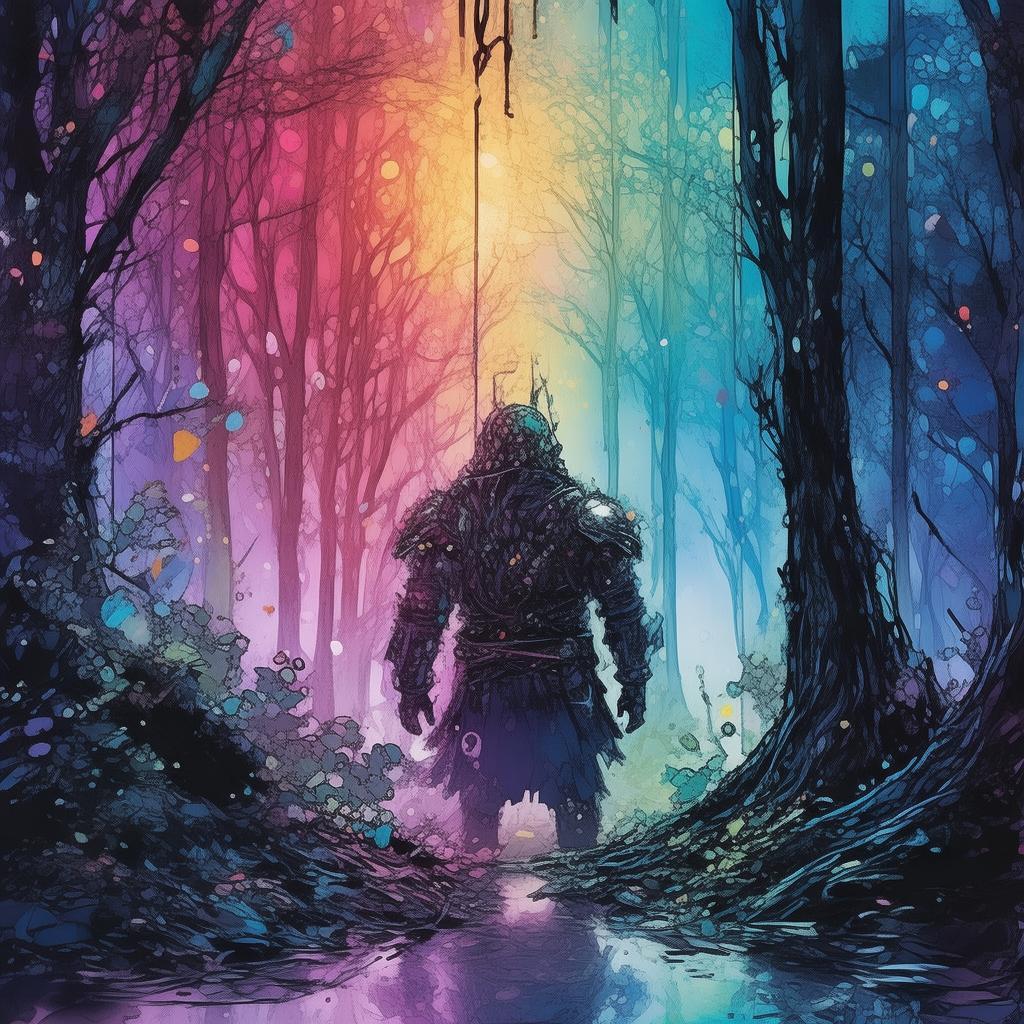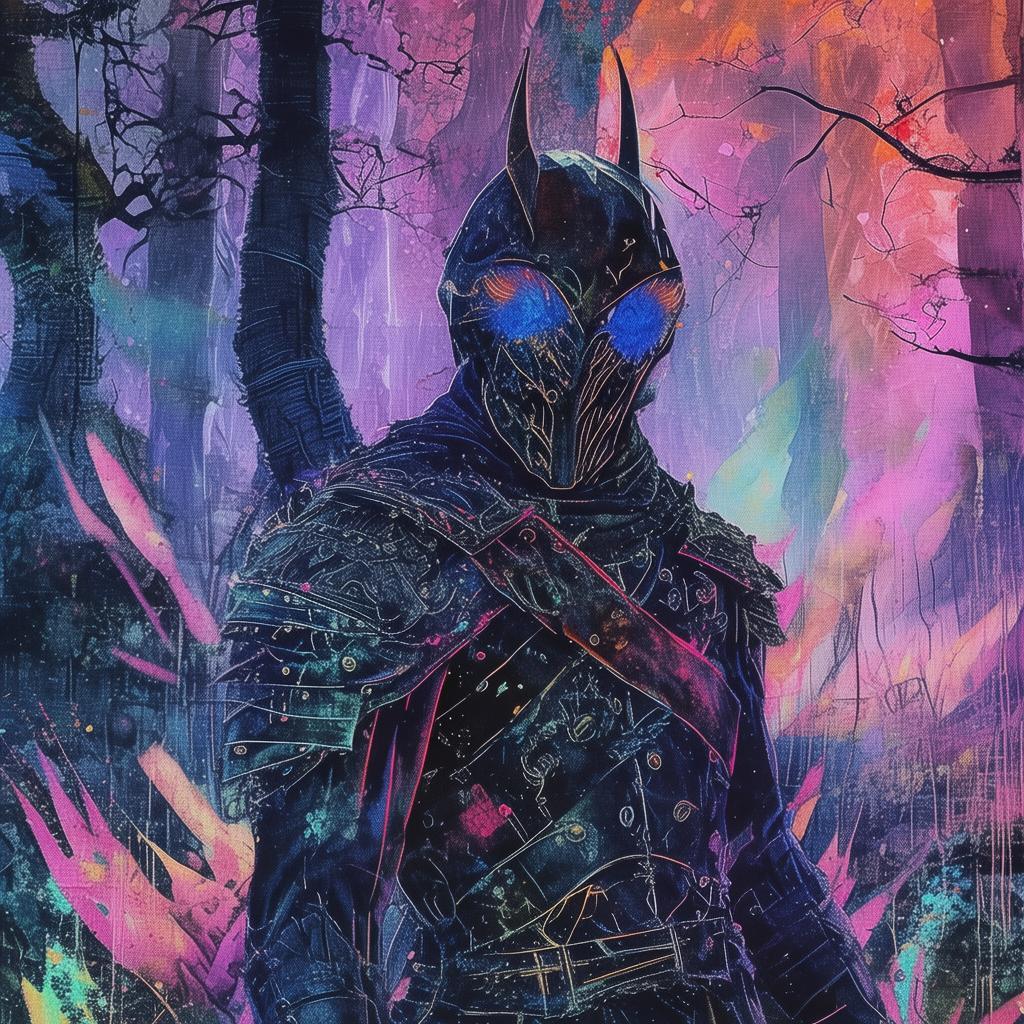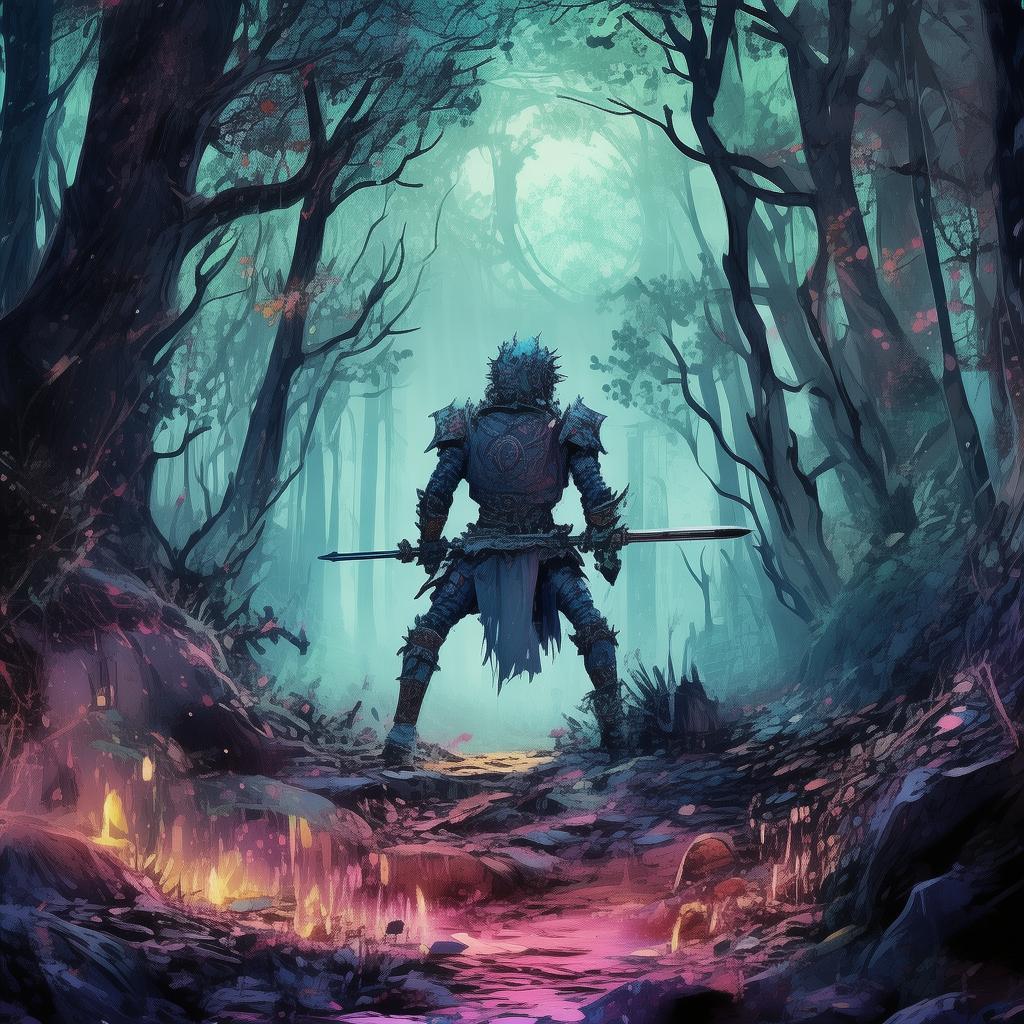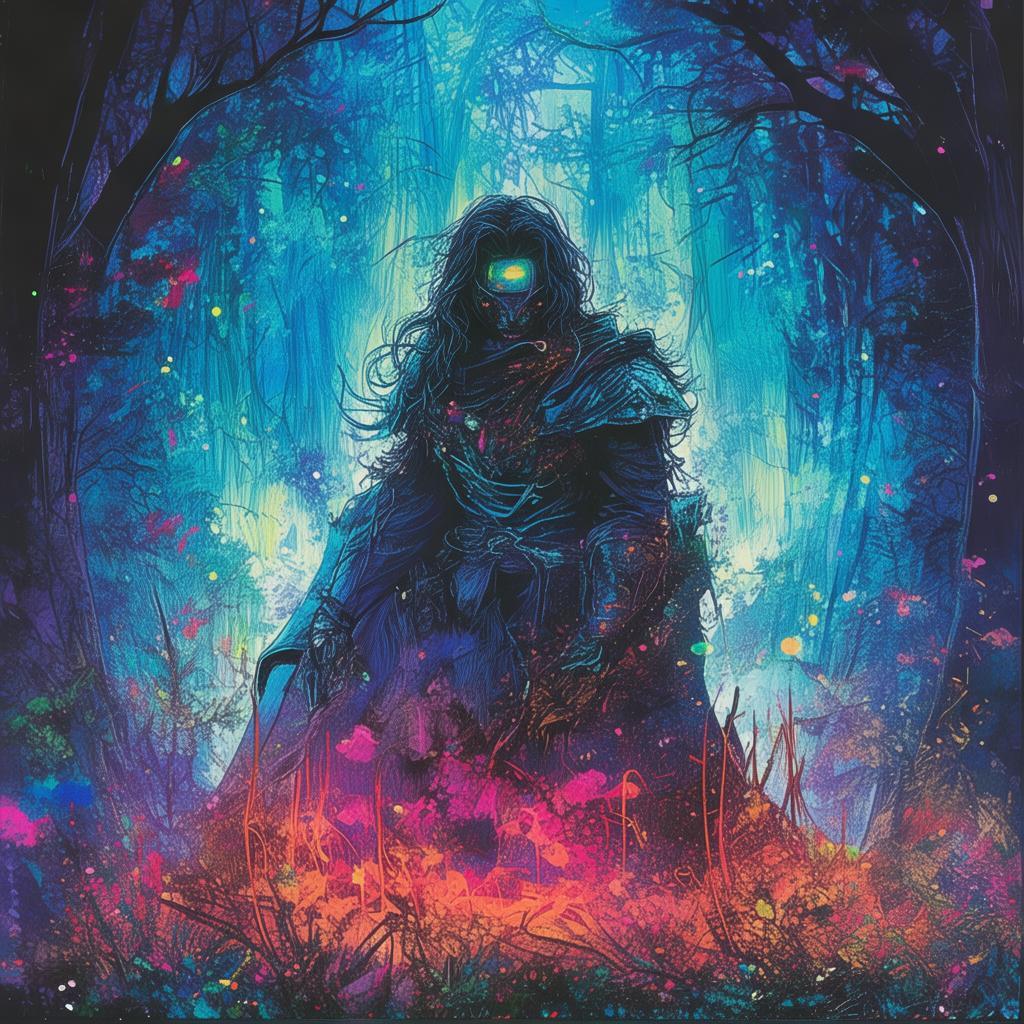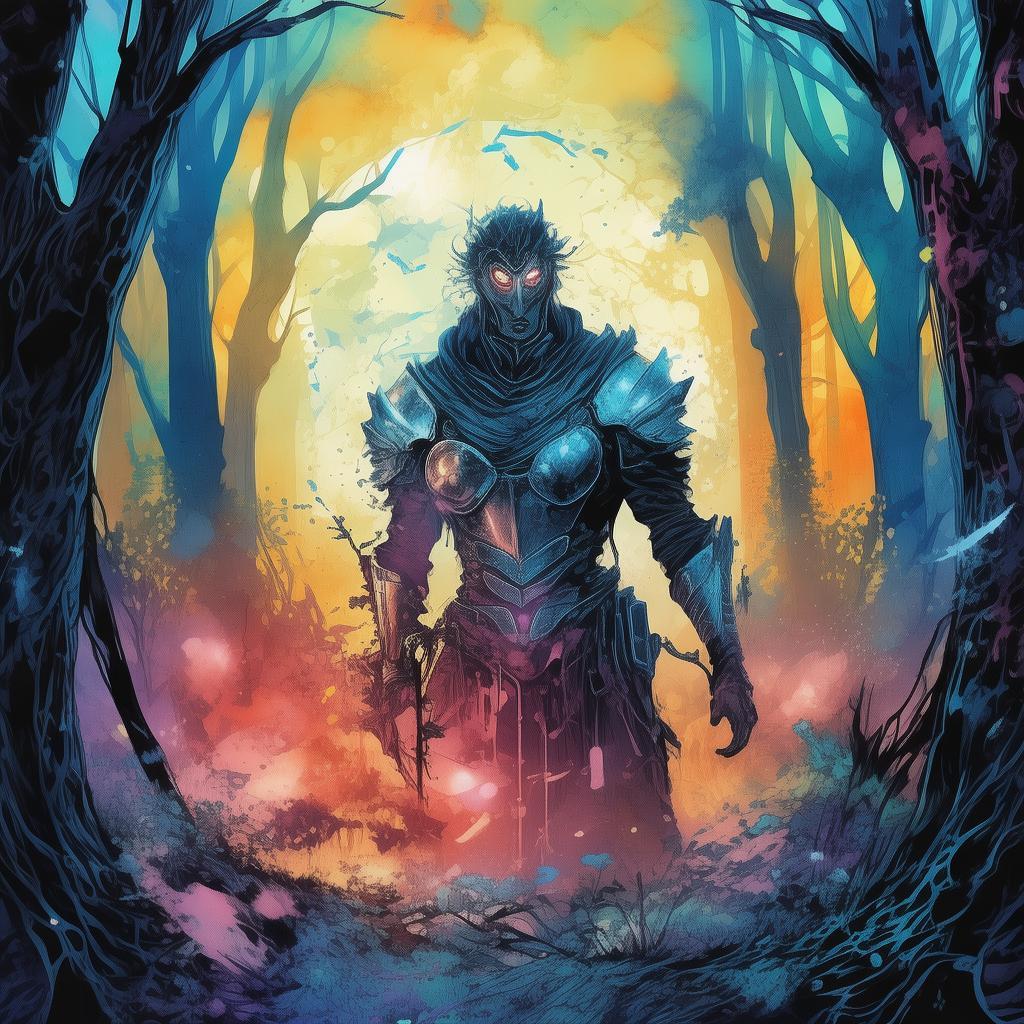The Dragon's Dilemma: The Paradox of the Lotus Pond
In the heart of ancient China, the Dragon Boat Festival was a time of reverence and joy. The rivers were filled with dragon boats, and the air was thick with the scent of lotus blossoms. Yet, amidst the festivities, there lay a paradox that had been whispered about for generations, a riddle that no one had ever been able to solve.
Li, a young and ambitious scholar, had always been fascinated by the legends of his land. He was known for his quick wit and insatiable curiosity, traits that had earned him the nickname "The Mindful Scholar." It was during the Dragon Boat Festival that Li stumbled upon an ancient scroll hidden within the library of his mentor, a scroll that spoke of the Lotus Pond's paradox.
The scroll read:
"In the heart of the Lotus Pond, a dragon lies bound by the threads of fate. To free the dragon, one must unravel the paradox of the mind. But beware, for the mind is a treacherous river, and those who navigate it must face the shadows of their own thoughts."
Li was captivated by the scroll's cryptic message. He knew that the Dragon Boat Festival was approaching, and he decided that this year, he would uncover the truth behind the paradox. With the help of his loyal friend, Mei, a skilled boatman, and his mentor's wise guidance, Li set out on a journey that would change his life forever.
The first challenge was to find the Lotus Pond. It was said to be hidden deep within the mountains, a place where the river's current was so strong that it could sweep away even the most seasoned boatman. Li and Mei set out early in the morning, their boat gliding silently over the water.
As they navigated the treacherous rapids, Mei shared stories of the Lotus Pond's origins. It was a place where the dragon, a mythical creature of immense power, had been trapped by the gods for eternity. The paradox, according to the legends, was that the dragon could only be freed by a person who could prove their innocence and purity of mind.
As they reached the mouth of the Lotus Pond, they were greeted by a serene scene. The water was still and clear, and the lotus blossoms seemed to shimmer with an otherworldly light. But as they approached the center of the pond, they were met with a riddle:
"I am not a river, yet I flow. I am not a tree, yet I grow. I am not a creature, yet I live. What am I?"
Li pondered the riddle, his mind racing with possibilities. Mei, ever the practical one, suggested that they look for something that fit the description. They scanned the pond, searching for any sign of the dragon or the answer to the riddle.
It was then that Li noticed a strange pattern in the water, a series of ripples that seemed to form a shape. He followed the ripples to the bottom of the pond, where he discovered a hidden door. The door was adorned with symbols that seemed to represent the paradox itself.
Li pushed the door open, and they were met with a chamber filled with mirrors. The walls were lined with them, each reflecting the other, creating an endless maze of images. Mei, who had been standing by, suddenly felt a chill run down his spine.
"Be careful," he whispered. "These mirrors are not just reflective; they are windows into the mind."
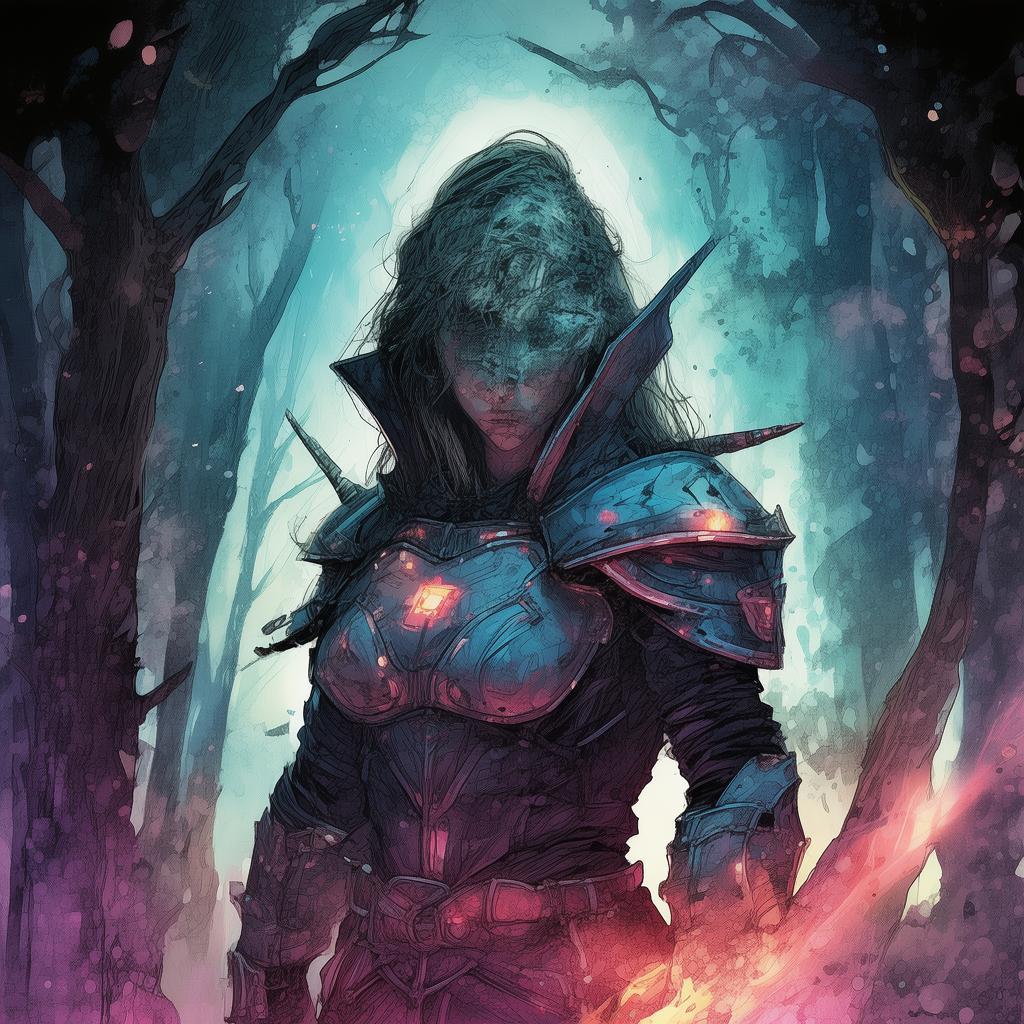
Li nodded, understanding the gravity of the situation. He knew that he had to face his own thoughts and fears if he were to find the answer. He stepped into the maze of mirrors, his heart pounding with anticipation.
As he navigated the maze, Li encountered his own reflections, each one a manifestation of his deepest fears and desires. He saw himself as a child, filled with wonder and innocence, and as an adult, burdened by the weight of the world's expectations. He saw his failures and his triumphs, his joys and his sorrows.
In the center of the maze, Li found a single mirror that did not reflect him. Instead, it showed the bound dragon, its eyes filled with sorrow and longing. Li realized that the dragon was a symbol of his own soul, trapped by the chains of his own mind.
To free the dragon, Li had to confront his own paradox. He had to prove that he was innocent and pure of mind. He had to let go of his fears and desires, to become nothing but the essence of his being.
With a deep breath, Li stepped forward and touched the mirror. The dragon's chains began to glow, and the symbols on the door started to fade. The mirrors around him began to shatter, revealing the truth behind the paradox.
Li realized that the paradox was not about the dragon or the Lotus Pond; it was about himself. The paradox was the mind's ability to create illusions and to trap itself within those illusions. The key to freeing the dragon was to see through the illusions and to embrace the truth of his own existence.
As the chains broke, the dragon soared into the sky, leaving behind a trail of light. Li and Mei watched in awe as the dragon returned to the heavens, a symbol of freedom and enlightenment.
Li knew that his journey was far from over. He had to return to his village and share the wisdom he had gained. He had to help others see through the illusions of their own minds and to find the true essence of their being.
The Dragon Boat Festival was over, but Li's adventure had just begun. He had uncovered the paradox of the Lotus Pond, and he had learned that the true power of the mind lies in its ability to transcend its own limitations.
As he and Mei returned to their village, the villagers welcomed them with open arms. Li shared his story, and the people were inspired by his journey. They realized that the Lotus Pond was not just a place of legend; it was a symbol of the human spirit's capacity for growth and transformation.
And so, the legend of the Dragon's Dilemma lived on, a tale of the mind's paradox and the power of truth. It was a story that would be told for generations, a reminder that the greatest adventure lies within the depths of our own minds.
✨ Original Statement ✨
All articles published on this website (including but not limited to text, images, videos, and other content) are original or authorized for reposting and are protected by relevant laws. Without the explicit written permission of this website, no individual or organization may copy, modify, repost, or use the content for commercial purposes.
If you need to quote or cooperate, please contact this site for authorization. We reserve the right to pursue legal responsibility for any unauthorized use.
Hereby declared.
